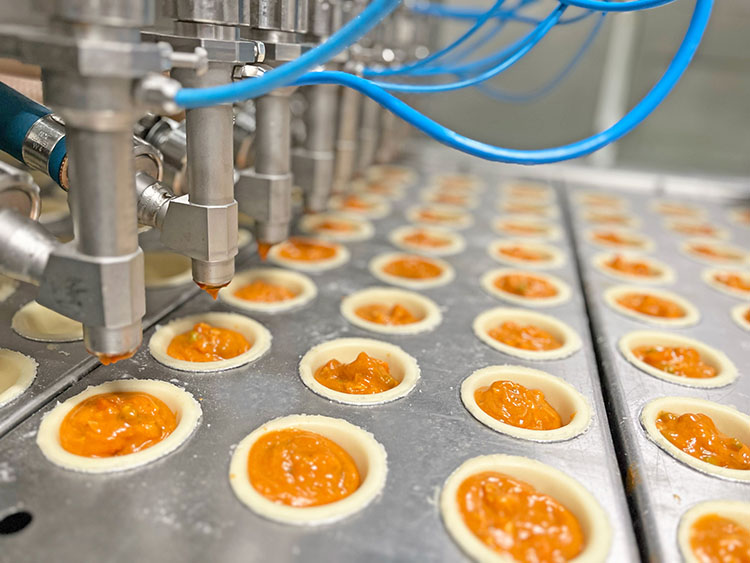
Every season sparks pie joy
Whether the pies have an open top – covered with various ingredients, or are closed with dough, lattice, or crumble, the technology needs to produce excellent results no matter the recipe and material changes.
Whether the pies have an open top – covered with various ingredients, or are closed with dough, lattice, or crumble, the technology needs to produce excellent results no matter the recipe and material changes.
Chip Czulada embarked on a new role as the President of Reading Bakery Systems (RBS) at the beginning of 2024. He shares with Baking+Biscuit International magazine his view on the first six months at the helm of the company where he has been working for over 20 years.
Fully automating kneading and mixing is an ambitious endeavor, given the complexity of the process, and the diversity of raw ingredients.
Over the years, advances in continuous mixing have been developed to improve ingredient metering, process controls and include specialized mixer designs and ultra-high capacity mixers. Compared to batch mixing, such technological developments make continuous mixing a better option than batch mixing, especially so for high-volume production.
Reading Bakery Systems (RBS) introduced a new ambient cooling conveyor, with increased efficiency in cooling crackers before entering packaging in a more‐compact footprint.
Continuous dough production is designed with volume and efficiency in mind. Requirements stemming from the product characteristics, the manufacturing needs,
Reading Bakery Systems, a member of the Markel Food Group, has re-engineered the MX Continuous Mixer. The model now ranks as the most versatile continuous mixer, and is suitable for a broad product spectrum and a wide diversity of doughs.

